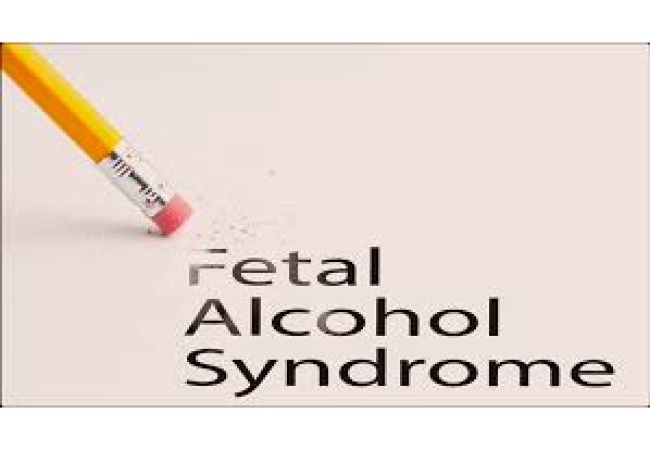
Fetal Alcohol Spectrum Disorders or better known as FASD is an umbrella term describing the range of effects that can occur in an individual whose mother drank alcohol during pregnancy. These effects may include physical, mental, behavioral, and/or learning disabilities with possible lifelong implications. The term FASD is not intended for use as a clinical diagnosis. An individual would not receive a diagnosis of FASD.
Did you know?: There are three main diagnoses that fall under the umbrella of FASD:
• Fetal Alcohol Syndrome- FAS
• Alcohol-Related Neurodevelopmental Disorder (ARND)
• Alcohol-Related Birth Defects (ARBD)
Let us talk about and define the differences in each one of these diagnoses:
Alcohol-Related Birth Defects (ARBD):
Each year, as many as 40,000 babies are born with FASD. This “hidden disability” leaves an individual with neurological, behavioral, and emotional impairments. Up to 94% of children prenatally exposed to alcohol will also fight mental illness. Most people do not know that FASD is the leading preventable cause of cognitive disabilities. And while increased people have become aware of the number of children with Autism Spectrum Disorders, the prevalence of FASDs is 50% greater than Autism. In the United States, one out of every hundred live births are affected by prenatal alcohol exposure. While the organic brain damage of FASD occurs even before a baby is born, some symptoms and behaviors associated with this disability look remarkably similar to Autism or Attention Deficit Hyperactive Disorder, ADHD.
Fetal Alcohol Syndrome (FAS):
FAS represents the most involved end of the FASD spectrum. People with FAS have central nervous system (CNS) problems, minor facial features, and growth problems. People with FAS can have problems with learning, memory, attention span, communication, vision, or hearing. They might have a mix of these problems. People with FAS often have a tough time in school and trouble having good relationships with others.
Partial FAS:
People with ARND might have intellectual disabilities and problems with behavior and learning. They might do poorly in school and have difficulties with math, memory, attention, judgment, and poor impulse control.
Alcohol-Related Birth Defects (ARBD):
People with ARBD might have problems with the heart, kidneys, bones or with hearing. They might have a mix of these.
A person with FASD might have:
• Low body weight
• Poor coordination
• Hyperactive behavior
• Difficulty with attention
• Poor memory
• Difficulty in school (especially with math)
• Learning disabilities
• Speech and language delays
• Intellectual disability or low IQ
• Poor reasoning and judgment skills
• Sleep and sucking problems as a baby
• Vision or hearing problems
• Problems with the heart, kidneys, or bones
• Shorter-than-average height
• Small head size
• Abnormal facial features, such as a smooth ridge between the nose and upper lip (this ridge is called the philtrum)
There is no known safe amount of alcohol during pregnancy or when trying to get pregnant. There is also no safe time to drink during pregnancy. Alcohol can cause problems for a developing baby throughout pregnancy, including before a woman knows she is pregnant. All types of alcohol are equally harmful, including all wines and beer. To prevent a child from having an FASD, a woman should not drink alcohol while she is pregnant or might be pregnant. This is because a woman could get pregnant and not know for up to 4 to 6 weeks (about 1 and a half months).
Now that we better understand What FASD is and the differences in the three types let us look at what FASD dogs’ tasks and services can provide for an individual with FASD:
Sensory Overload
Many children with FASDs have sensory issues causing involuntary repetitive movements or behaviors that seem out of place in a social context. These movements thus become the “signal” or “command” taught to the dog. For those children who need sensory input, the physical presence of the dog offers tactile stimulation and “contact comfort.”
• Disruption of the behavior
• Deep pressure therapy
Calming
An FASD Service Dog’s presence offers a calming influence. Like children who are affected by ADHD, many children suffering from fetal alcohol exposure have difficulty sitting and staying at the table or being able to focus. Due to an over-aroused nervous system, children with FASD have trouble settling down and not becoming agitated.
• “Hanging out” Having the dog present
• Deep pressure therapy
Social Lubrication
Similar to the ways in which a service dog assists an individual with Autism, FASD Service Dogs provide support in a variety of environments, which results in improved communication and social skills. The term “social lubrication” was developed by researchers Mugford and McComisky to describe the phenomenon where animals’ presence increased social interaction between people. Other social scientists suggested that the attractiveness of a child’s pet to other children may, as a secondary gain, enhance the attractiveness of the child as a friend or playmate. Makes sense!
• “Hanging out” Having the dog present
• Deep pressure therapy
Better Thinking
Some of the significant benefits that an FASD Service Dog can bring to children are: – An advancement in abstract and concrete thinking – Improvement in focus – An increase in the length of attention span. In many children with developmental disabilities a sense of identity is often compromised
Self Confidence
A key role of the service dog is giving the individual more self-confidence, which promotes independence. For children who also have attachment issues or fear of abandonment, the unconditional companionship offered by the child’s service dog is very healing. Often children with disabilities are dependent and can feel powerless due to their disability. The experience of some control over their service dog may provide a sense of mastery and self-assurance.
Understanding Others
Children living with fetal alcohol exposure, like children with Autism, may have difficulty “in putting themselves in other people’s shoes.” Taking care of a service dog offers a chance to develop nurturance and practice people skills.
For children who are challenged by interpreting the facial expression of others or understanding behaviors, the opportunity to evoke compassion is critical. Developing empathy also pertains to a child’s sense of self and the feelings and emotional investment in something other than themselves.
Children learn empathy in their relationship with their service dogs as they must learn to read nonverbal cues. And in a non-threatening way, the children learn to assess the needs of their service dog and then learn to choose behaviors that will presumably meet that need. This unique non-verbal mode of communication sharpens the child’s ability to decode nonverbal signals.
Safety
Parents of children living with prenatal alcohol exposure have significant concerns for their children’s safety; physical and emotional. Most children with FASDs have extreme impulsivity. They may dart out into the street or a parking lot without looking. FASD Service Dogs, like Autism Service Dogs, can be trained to be tethered to a child, which increases a sense of security for both parents and child.
Families whose children have FASDs are often told that their children need “external brains” to help them navigate through life. Abstract concepts like telling time feel much more complicated. The combination of impulsivity and lack of judgment can leave children with this disability extremely naive. Research suggests that putting in place external support allows children who are alcohol-exposed more chance to succeed. An FASD Service Dog in essence provides another external brain.
The Bond
Children suffering from brain damage or psychiatric disabilities may have difficulty in creating intimacy with others. Trust is a big issue for those with attachment disorders. An FASD Service Dog becomes a form of grounding for a child with fetal alcohol exposure. The dogs serve as an emotional and sometimes physical anchor for a child who lives in a world that feels disorienting and confusing. When unexpected changes or transitions easily offset the emotional balance of a child, the consistency of a service dog’s behavior helps that child be more able to cope with the unexpected.
These are just some of the common tasks that a FASD service dog can provide to an individual at any given time to help its handler. What these superhero canines can do for their owners is amazing and it is all achievable through training.
Children learn empathy in their relationship with their service dogs as they must learn to read nonverbal cues. And in a non-threatening way, the children learn to assess the needs of their service dog and then learn to choose behaviors that will presumably meet that need. This unique nonverbal mode of communication sharpens the child’s ability to decode nonverbal signals. knowing or having the diagnosis yourself that a service dog can help someone with this disability?? This is exactly why I decided to do the serious because these dogs are used for so many diagnoses that we are unaware of just how they can help an individual in need.
Thank you all again for continuing to allow us to educate on service dogs!


Leave a Reply